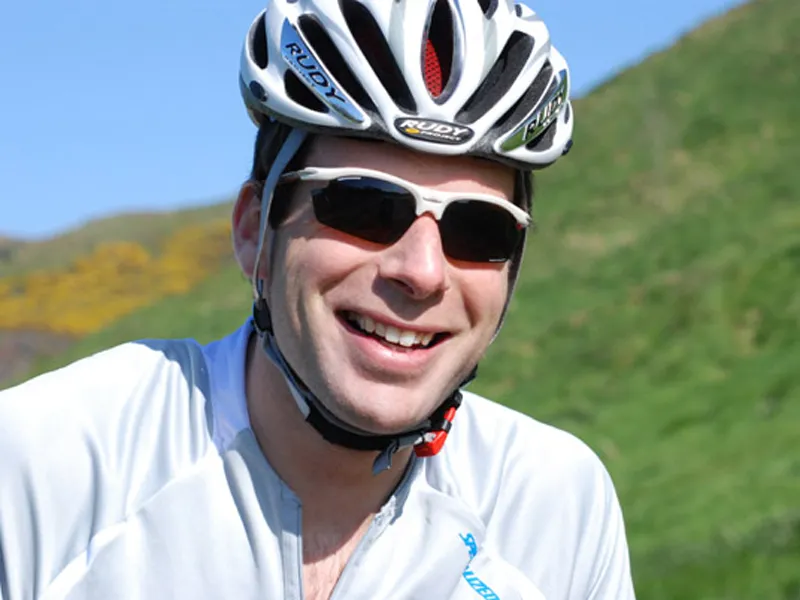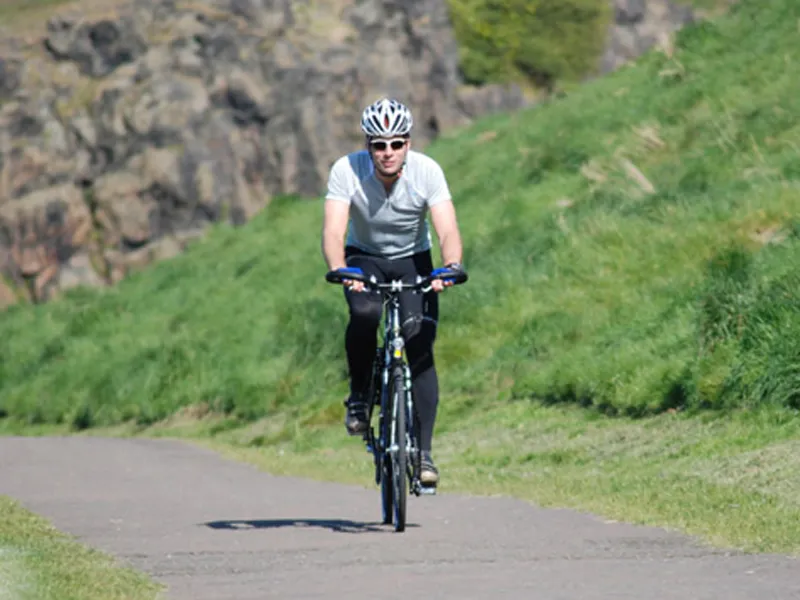Round-the-world cyclist Mark Beaumont is preparing for his latest adventure – a 15,000-mile trip from Anchorage, Alaska to Ushuaia at the foot of Argentina.
His aim is to cycle the length of the American Cordillera, the longest mountain range on the planet, which runs from the Alaskan Ranges past the Rockies to the Andes.
Along the way he will get off his bike to scale the two highest peaks on the American continent, Mount McKinley (also known as Denali, 20,320ft) in Alaska and Mount Aconcagua (22,841ft) in Argentina.
Beaumont holds the world record for the fastest true circumnavigation of the world by bicycle after covering 18,296 miles in 194 days and 17 hours last year, beating the previous record by 81 days.
He told BikeRadar he had been inspired to attempt his latest trip after hearing of friends' experiences on the north-south Pan Americas route. "After the world record, anything less would be seen as an anti-climax," he said. "I wanted to make it a tough challenge for myself.
"The Cordillera is one of the longest unbroken journeys you can do on Earth. It's 15,000 miles, which is only slightly less than my world trip, but this time it's a continuous journey. On the world trip I avoided the mountains because it was a race and they would have slowed me down. This time I wanted to follow the spine of America the whole way."
The route has never been ridden before, and one of Beaumont's toughest challenges will be averaging 70-80 miles a day on mountainous terrain. The Scotsman will set off on 27 May and expects the journey to take him around eight months. He will be guided up the two highest peaks but will do all the cycling solo.
"The toughest part will be the transitions between the cycling and climbing," he said. "I've got to get off the bike, climb to 6-7,000m, then get back on the bike after just 24 to 48 hours. These are pretty fierce climbs, at high altitude. Mt McKinley is one of the coldest, toughest mountains on Earth. It takes three weeks to climb and there's only a 50 percent success rate, and a lot of cases of frostbite."
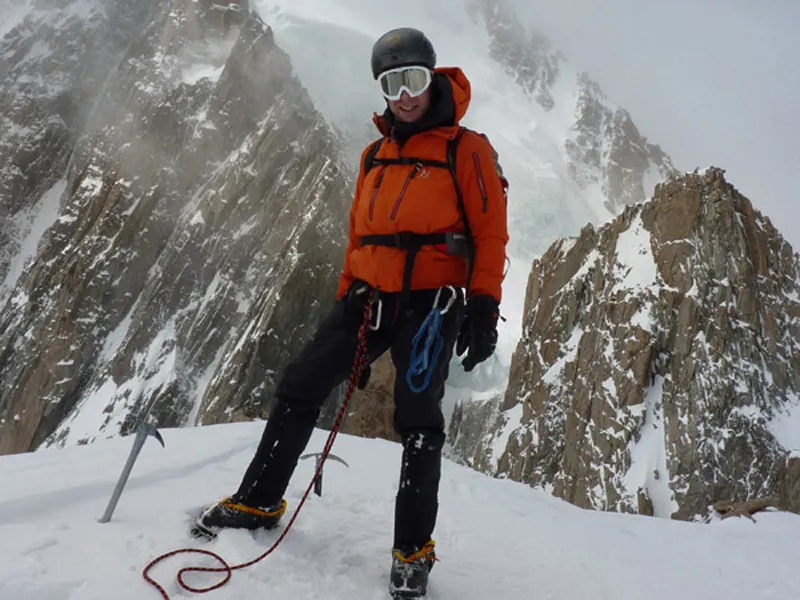
Beaumont has trained for his trip on the mountains around Chamonix in France
Beaumont has done a fair bit of climbing but never above 4,000 metres, so the mountaineering will be a challenge. The 26-year-old has spent the past six months finishing writing his first book as well as training and planning for this expedition. He has spent time in Chamonix, France learning how to cope with altitude sickness and use crampons and ice axes, as well as getting used to carrying an 80lb pack.
One major change since his last journey will be the amount of media coverage. He has teamed up with the BBC to keep supporters updated via the internet, radio and television, and create a documentary about his trip – an opportunity which he described as "gold dust".
"Last time the main reason for my trip was breaking the world record," he said. "On the back of that was the opportunity to film a BBC documentary... which eventually got shown internationally. Based on the success of that, the BBC came back and asked if I had any other ambitions.
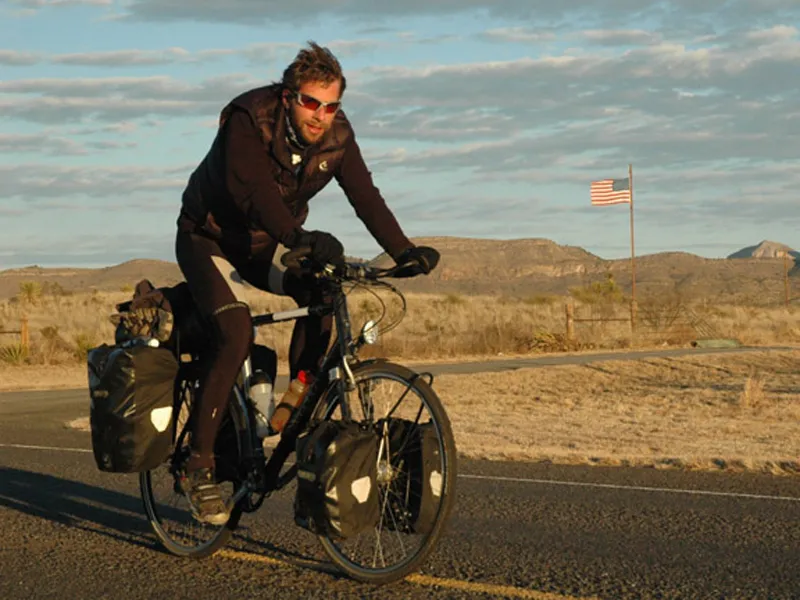
The BBC will follow Beaumont's journey, after the success of last year's round-the-world trip
"I really wanted to up the ante this time. The main reason for the trip, apart from to fulfil a personal ambition, is to make the best documentary possible. My dream is to take as many people along on the journey as I can. The cool thing is the BBC are saying, 'you've got seven to eight months, go and make it happen, and whatever happens, make sure you capture it'."
Using satellite technology, Beaumont will provide regular updates on his progress at www.bbc.co.uk/cyclingtheamericas, as well as linking up with Radio One DJ Greg James (weekdays, 4-6.30am) and the Breakfast TV show (6-9.15am, BBC One) at points along the route. He is also planning to post updates on social networking sites Twitter, Flickr, Facebook and Bebo.
He will ride a custom-built Koga-Miyata with Rohloff hub gearing, similar to the "ridiculously reliable" one he used on his round-the-world trip. The only major difference is that his new bike will be fitted with Shimano XT disc brakes to reduce wear on the rims. It also has slightly different geometry, with a "softened" front end.
"The main weight on the bike is all the communications," he says. "I've got a satellite dish like news reporters use, and a satellite phone, computer and other stuff. I'm going to look like the average nomadic world cyclist until you open my pannier bags and see all this kit!"
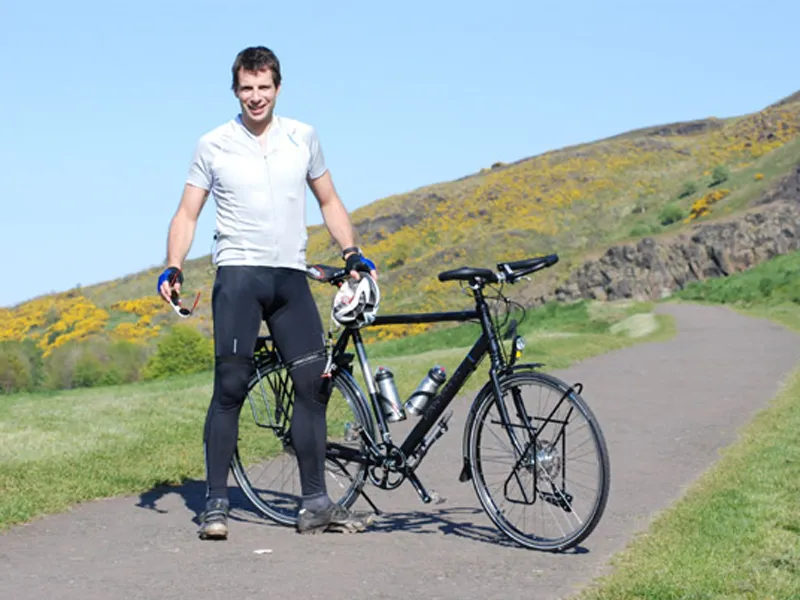
Beaumont will ride a custom-built Koga-Miyata with Rohloff hub gear and disc brakes
